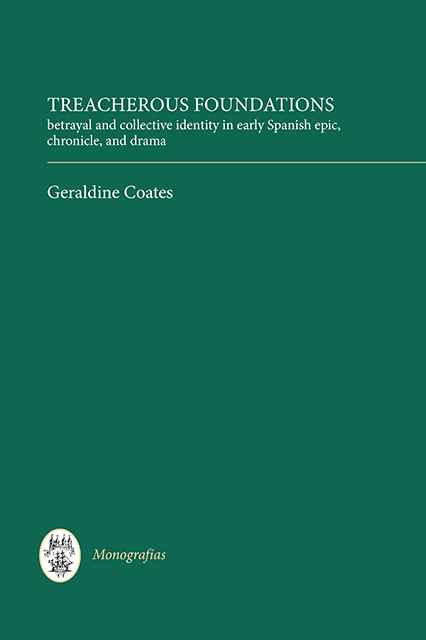 Treacherous Foundations
Treacherous Foundations Published online by Cambridge University Press: 07 March 2023
So we see times changing, and some nations putting on new strength and others falling into weakness
(Ovid 1984 15. 418-31)Rise and Fall
The rise and fall of states was a source of fascination for the classical world. For some writers, the succession of growth and demise was inevitable and predestined: Orosius (385-420) imagined the empire in perpetual rise and fall like the movement of the sea, whilst Polybius (c. 204-122BC) spoke of constitutional forms of society experiencing cycles of growth, decay, and lapse. Theories of decline, however, often imputed the downfall of a community to a single, treacherous act. One of the darkest theories comes from the Epodes of Horace (65bc-8bc), in which the origins of civil strife lie in the fratricidal murder of Romulus by Remus, a deed which locks the Romans into a vicious cycle of conflict, an acerba fata. Violence at the foundations of community, or ‘la violence fondatrice’ as defined by Paul Ricoeur, is integral to the historical process; there is no historical community which is not founded from a situation of conflict (2000: 99). Nor is there one which does not experience loss and defeat at its base. Loss is the ‘rock bottom foundation of the communal’ (Harrison 1992: 320), and, as David Quint observes, ‘the nation in question is first depicted as vanquished: it receives its identity in its moment of prostration’ (1993: 360).
These statements have important ramifications for our reading of foundational legends of medieval Spain. As the legends studied in this volume would have it, the Muslim invasion of 711, which brought about the downfall of the Visigothic kingdom in Iberia, came about as a result of rape and double betrayal. According to these accounts, Julian, Governor of the enclave of Ceuta which was then the Visigothic fortress of Septem, sent his beautiful daughter, La Cava, to Roderick’s court in Toledo where, instead of educating and protecting her, the King raped her. When Julian learned of this in a letter from his daughter, he was incited to betray the King by negotiating with the Moors and facilitating their access to Spain from the Straits of Gibraltar, a feat they successfully accomplished. This marked the demise of Spain but not its end, as the Visigothic noble Pelayo, having successfully guarded his corner of Asturias from the Muslim forces, was to resurrect, like a small spark spreading light throughout the land, the remains of this once prosperous and unified kingdom.
To save this book to your Kindle, first ensure [email protected] is added to your Approved Personal Document E-mail List under your Personal Document Settings on the Manage Your Content and Devices page of your Amazon account. Then enter the ‘name’ part of your Kindle email address below. Find out more about saving to your Kindle.
Note you can select to save to either the @free.kindle.com or @kindle.com variations. ‘@free.kindle.com’ emails are free but can only be saved to your device when it is connected to wi-fi. ‘@kindle.com’ emails can be delivered even when you are not connected to wi-fi, but note that service fees apply.
Find out more about the Kindle Personal Document Service.
To save content items to your account, please confirm that you agree to abide by our usage policies. If this is the first time you use this feature, you will be asked to authorise Cambridge Core to connect with your account. Find out more about saving content to Dropbox.
To save content items to your account, please confirm that you agree to abide by our usage policies. If this is the first time you use this feature, you will be asked to authorise Cambridge Core to connect with your account. Find out more about saving content to Google Drive.